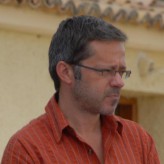In the wake of the verdict in the L’Aquila earthquake trial big words were not spared. Is this a “battle between science and politics”? Is the decision taken “more reminiscent of Dark Ages magical thinking than modern scientific understanding”? Is this trial “likened to persecution of Galileo”? In reaction to the verdict, a common tendency in the earth science and risk community seems to move towards a ‘withdrawal’ from our commitment to society. But is this the right thing to do?
This short-sighted verdict may indeed very well alienate society’s strongest ally when it comes to safeguarding society against potential dramatic consequences of earthquakes. But is society helped when scientists systematically overexaggerate the potential hazard to cover themselves against possible legal consequences? Such attitude would completely erode the credibility of science. And when a hazard becomes really serious, society will turn a deaf ear to the advice of the scientists. Society isn’t helped either when scientists withdraw in their academic ‘ivory towers’ and completely ignore their societal role. This would only give ‘charlatans’ carte blanche to preach doom.
Eventually, scientists do not have a choice! Scientists have to stick to their responsibility towards society. In risk communication they will have to be as clear and honest as possible, but without devaluing the nuance inherent to science. Scientists have to keep confronting authorities that run away from their responsibilities. And scientists will have to keep investing in an ‘informed citizenry’, to provide them all necessary tools to become aware and resilient with respect to the inevitable earthquake. But at the end, scientists should be able to say and write freely and unconditionally wherever their science leads them!



Maureen Whalen | 2012-11-02|09:07 (UTC)
I strongly agree. As scientists and especially geologists, our passion should be not only to strive to understand the world around us, but to promote that understanding with others. More importantly, we should be promoting the basic idea of science, ‘question everything’. The key will be to clearly communicate our current understanding and the associated uncertainties without confusing, unnecessarily alarming, or boring the public.